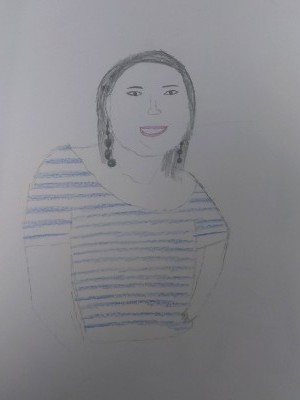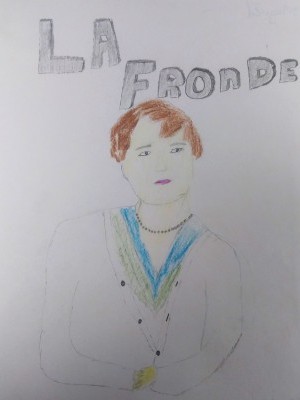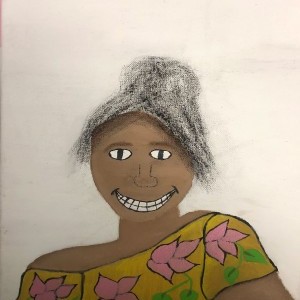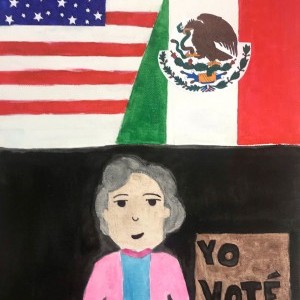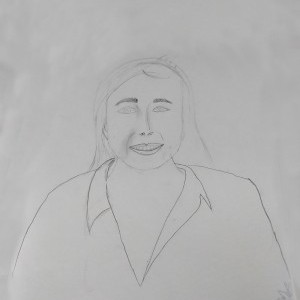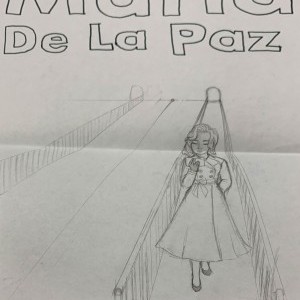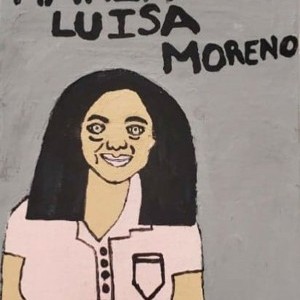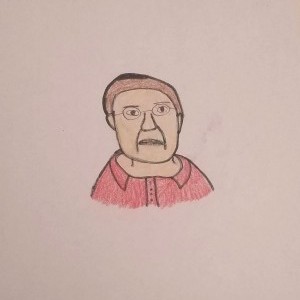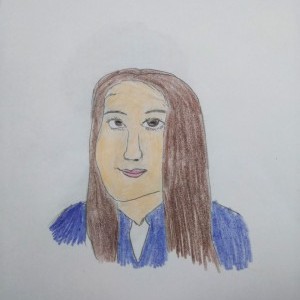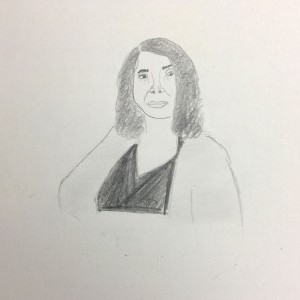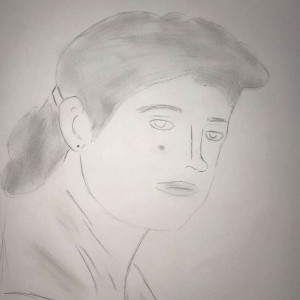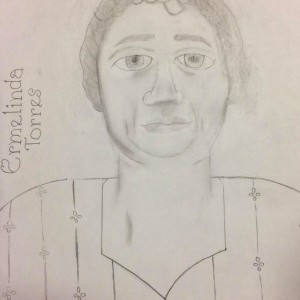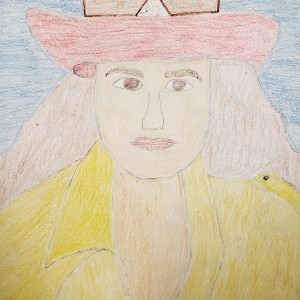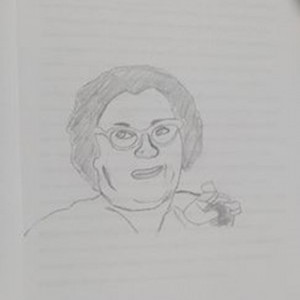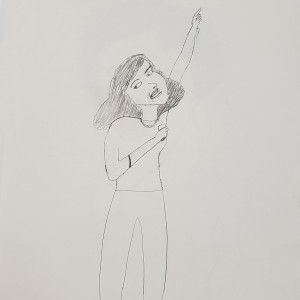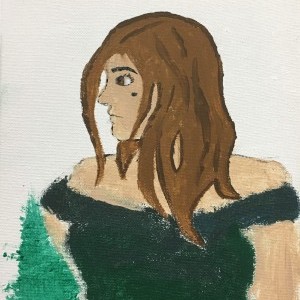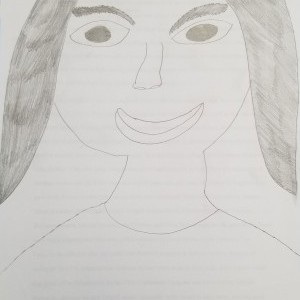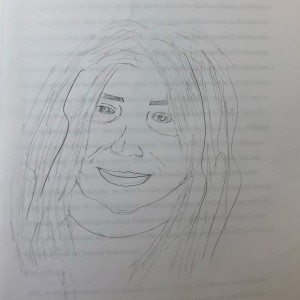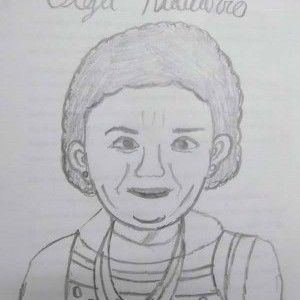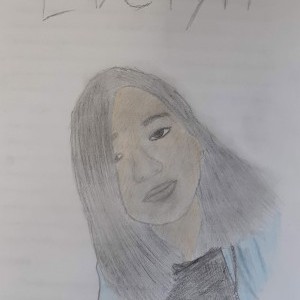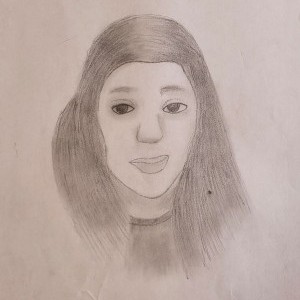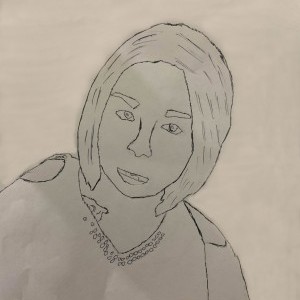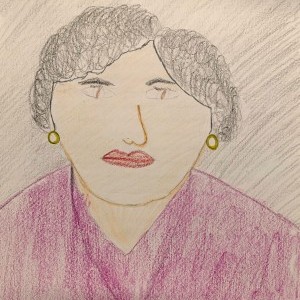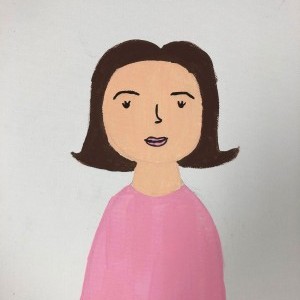Ana Miguel
García Early College High School | Laredo, TX | 10th Grade
Inspirational Family Member
My Aunt
Since 1848, women have fought for the right to vote. It took them nearly 100 years to be able to win that right because of all the disagreements from the men. Finally, during 1920, Congress passed the 19th amendment that granted the women’s right to vote. Just like men, women declared that they deserved the rights and responsibilities of their citizenship.
The first person to vote from my family was my aunt. When she first voted, it was 1980 and she was 18 years old. The candidates were Jimmy Carter, as a Democrat, Ronald Reagan, as a Republican, and John, B. Anderson, as an Independent.
“The first time I voted, I felt like an example, an empowerment, to my family because I was the first person to let my voice, and my opinions, be heard. I was able to make my own choice without having someone to tell me what to do. To show my way of thinking.” The feeling she was going for was feeling mature because she was taking responsibility for her own choices.
Being the first women of her generation is honorable because she is an example to her other siblings. She is showing them how to go vote. “In our history, the women’s history, before, we didn’t have the chance to vote. Now that we are able to vote, it’s a big thing. We should take the chance because we didn’t have the opportunity to be voting. Now that we can, we need to use it. Back then, we wanted our voices to be heard, to be big, give out ideas. Now that we can, we need to take that advantage of the choices that we are making.” The choices that we make, make up our country. Our decisions are positively changing the U.S.
The choice within our family could be heard because of her. We have a person to be able to look up to when voting. Being the oldest in sibling in the family, and especially being a woman, she sets an example for the generations to come. “ My experience when I first voted felt amazing. I felt proud of myself. I realized how important it is to let people know what you think.”
Historical Figure I Admire
Marguerite Durand
As a French actress, writer, and a suffragette, she founded a daily feminist newspaper called La Fronde, which was run only by women and to support the movement of women’s rights in 1897. In 1900, she was credited for organizing the Congress for The Rights of Women. Later on, she opened the Bibliothèque Marguerite Durand in Paris that contains the best sources for research into women’s history and feminism.
She was born on January 24, 1864, to a family in the middle class. For her elementary years, she was sent to study at a Roman Catholic Convent for the Trinitarian Ladies, then to the Conservatoire de Paris. Later on, she joined the Theater of the Comédie Française where she was able to play roles of ingénues. In 1888, she gave up her career to marry Georges Laguerre, a young lawyer. Laguerre introduced her to politics and involved her in writing pamphlets for the ‘Boulangists’ movement. She debuted as a journalist at La Presse, directed by her husband and was nicknamed “the muse of Boulangisme”. In 1891, they got divorced and Durand was able to work for Le Figaro. In 1896, the paper sent her to cover the International Feminist Congress to write a humorous article, which led her to the discovery of La Fronde on December 9, 1897.
La Fronde was written, composed, administered and directed by women. The newspaper advocated for women’s rights. Their campaign claimed for women admittance to the Bar association, the possibility to be admitted to the Ecole des Beaux-Arts, to be named for the Legion of Honor, to attend Parliamentary debates, and more. As she continued her career as a journalist, she created L’Action in 1905 and Les Nouvelles in 1909. In 1907, she was able to organize the Congress For The Rights of Women. She, later on, launched the idea of women candidates for legislative elections, which she presented herself.
Durand’s activism for working women helped the organization of many trade unions. She was able to establish the zoological Cimetière des Chiens, the cemetery of Asnières, in 1899. She would collect and preserve documents and archives that relate to the history of women and their role in society. In 1931, she donated her collection to the government and the following year, the Bibliothèque Marguerite Durand was opened. She was the director of the library until she passed away at the age of 72 on March 12, 1936.
SOURCES +
What the Project Means to Me
Many people don’t vote because they think that it’s not going to make a difference. However, the more votes one makes, the bigger the difference it makes. As a woman, we want our voices to be heard, yet, we do nothing to showcase them. My experience with my aunt was something unexpected. She told me that the first time she voted was forced by her younger sister. Even though she didn’t want to vote for the first time, she felt relieved when she did. She was proud of herself that she voted for someone that could run the country. She was excited to see the result that would come out of her decision. She realized how important her choices are for her country.
When interviewing my aunt, I also learned that not many Latin American people vote. They make up most of the country but don’t take the chance to vote. The reason that they don’t try to vote is that they think it won’t make any difference. Voting can change many things not only for the presidency. Women are still being treated differently than men. They are often paid less in the same working environment as men are. With a single vote, some things are able to be stopped for both men and women. Even though many people prefer not to vote because of the changes that are not made, they should still vote because we never know what our future holds.
Explore the Archive
More From This Class
Click on the thumbnails below to view each student's work.Deadline Extended
There's still time to join Women Leading the Way.
Become a part of our storytelling archive. Enroll your class today.
Join the Project

